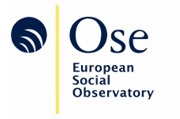The OSE has started a new research project, together with the European Anti-Poverty Network (EAPN), which is in charge of the overall coordination. Funded by the European Commission, the European Minimum Income Network (EMIN) project will first build a network of national experts (social and anti-poverty NGOs and people experiencing poverty) with the aim to review and compare national situations as regards minimum income schemes. Subsequently, the aim is to build consensus on the necessary steps towards the progressive realisation of adequate and accessible minimum income schemes in EU Member States. This is in line with the European Commission’s Active Inclusion Recommendation of 2008, the Europe 2020 strategy and fits within the context of the European Platform against Poverty and Social Exclusion.
The OSE has been asked to provide scientific guidance, and to support the overall project management, which is taken care of by EAPN. Thus, the OSE contributes to the drawing up of the guidelines for the case studies (with Anne van Lancker, main consultant of the project) and provides feedback on the draft national and thematic reports. These reports will deal with the adequacy, coverage and (non) take-up of minimum income schemes, with special attention given to specific vulnerable groups (the elderly, homeless people). The OSE will also assist with the drafting of EU level documents for discussion at the EU level conferences. The partners in the project are the European Trade Union Institute (ETUI), two European NGO networks (AGE-Platform and FEANTSA), the Belgian Public administration (FPS Social Integration), Agence Nouvelle de Solidarités Actives (ANSA), the Social Inclusion Regional Group (SIRG) and representatives of five selected countries, from the National Minimum Income Networks (NIMIN) in Belgium, Italy, Ireland, Denmark and Hungary. During the second year of the project, the other EU Member states will join in.
OSE researchers involved in this project: Sebastiano Sabato, Ramón Peña-Casas and Bart Vanhercke.
Social Solidarity for Social Integration: the Minimum Income Network (EMIN)
-
